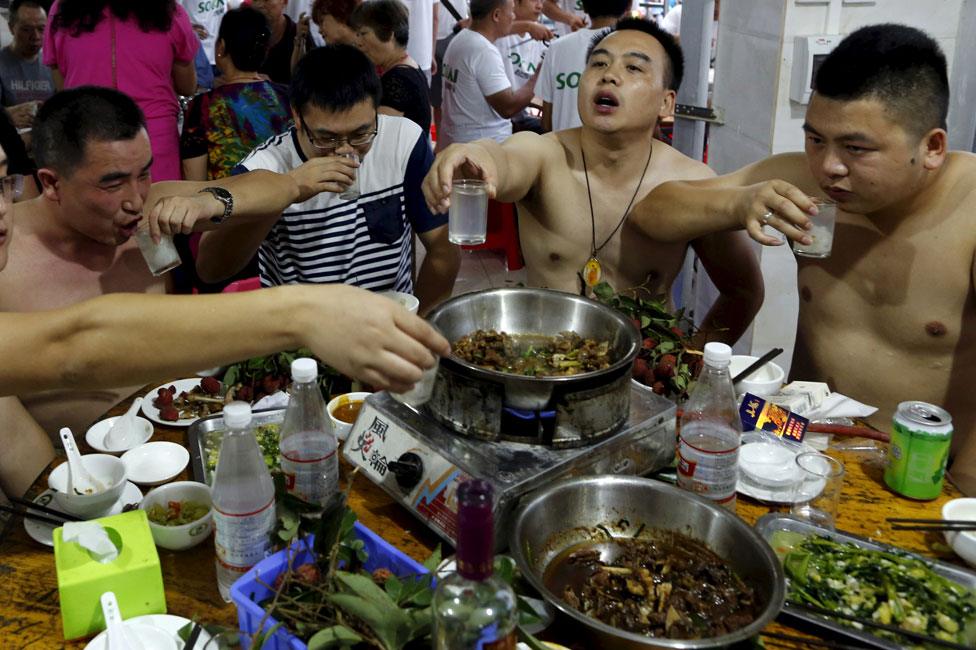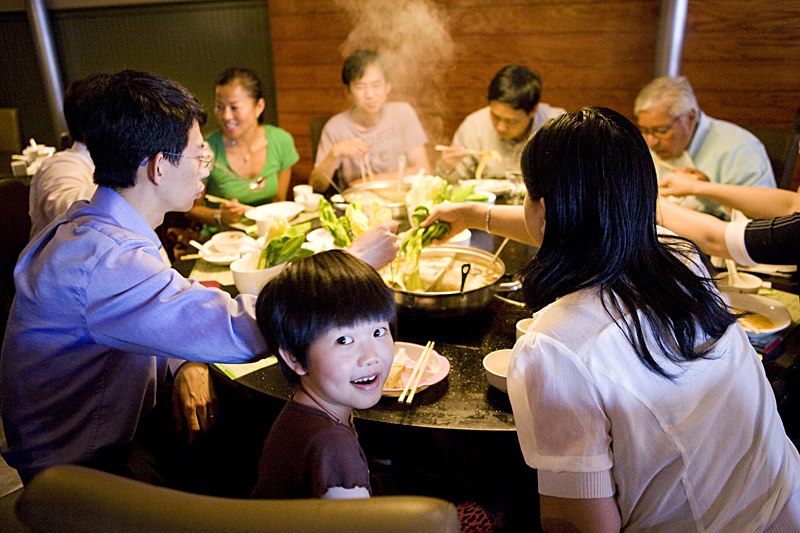20 New Pieces Of Advice To A Guide to China Food Scene
20 New Pieces Of Advice To A Guide to China Food Scene
Blog Article
Top 10 Tips To Bargain Etiquette In China
1. Tip: Begin low and be respectful. Tip Offer between 50-70percent of the quoted price and then negotiate higher. Show your seriousness by being and firmly, but with respect.Pro The advantage is that you can put in your position without causing offense to the seller.Cons The idea of starting too low can cause frustration for sellers of products with lower margins.
2. Knowing the market valueMake sure you don't overpay by researching the cost of a product prior to buying it.Pros: Prevents fraud and builds confidence in negotiations.Con: It is time-consuming to do research, particularly when it comes to unique handmade items.
3. Show Genuine IntentionTip. Sellers are willing to bargain if they feel that you're serious about purchasing.Pro: Builds rapport and improves the odds of securing a bargain.Con: Excessive enthusiasm could indicate a desire to pay higher prices, thereby weakening your case.
4. Step Away StrategicallyTips: If you don't notice a price reduction be patient and walk away. Sellers might contact you with a better deal.Pro: A powerful strategy to ensure you get the lowest price.Cons: It can backfire when the seller is unwilling to reduce the cost of an item, especially if it's in high demand.
5. Learn Basic Mandarin PhrasesTip: Phrases like "Tai gui le!" (Too expensive!) It's too costly! It is necessary to exert effort.Pro: Personalizes negotiations and softens the stance of the seller.Cons: The use of limited phrases may not be useful in more complex negotiations.
6. Be calm and patientNegotiations may not be quick. Keep your cool to avoid appearing desperate.Pro: Sellers often reward buyers who are calm and persistent by offering better prices.Cons: It takes time and energy to do, particularly in busy markets.
7. Bring CashCash payments are more likely to be accepted by retailers than digital ones.Pro: Cash-on-delivery deals, particularly with small suppliers, can lead to discounts.Cons: Carrying large amounts of cash could put you at risk in markets with a lot of people due to pickpockets.
8. Group DiscountsRequest discounts in bulk when you purchase several products.Pro: You can boost your bargaining skills and score a better deal.Pro: It requires you to buy more items which may not fit your needs.
9. You don't need to be scared to say no.Tip: Politely decline and walk away if a seller is unwilling to reduce the price within your budget.Pro: It can help you avoid buyers' remorse and ensures you are in your financial limits.Con: You might be unable to get an item you've always wanted.
10. You should never bargain.Avoid bargaining in supermarkets departmental stores, and high-end stores.Pros: Prevents embarrassment while maintaining cultural respect.Cons: Your chances of negotiating are limited in certain settings.
The Benefits of Bargaining with Chinese PeopleSavings: You could save a lot of money by bargaining the price.Bargaining is a great way to learn about the customs and traditions of your local area.Personal Interactions: This creates an emotional connection with local sellers.The Cons of Bargaining with ChineseHaggling can be time-consuming for those who are brand new to shopping, in particular.Without basic Mandarin the communication could be difficult.It is stressful, and not everyone likes to bargain.You'll be able to navigate Chinese markets and negotiate effortlessly once you've learned these tricks! View the most popular taste your way through China for website advice including must-try foods in China, regional Chinese cuisine highlights, taste the regional flavors of China, a tour of China regional cuisine, must-try foods in China, discover China regional dishes, journey through China food culture, must-try foods in China, discover China culinary delights, a culinary journey through China and more.
Top 10 Dining Tips Manners And Etiquette For Chinese People
1. Wait to be Seated Tip If you are dining in a formal setting, wait for your server or host to direct you to your seat because seating arrangements typically are a reflection of an orderly manner of life.Pro: Respects authority of host and the cultural rules.Con: When in casual settings, you may not be aware of the host, which could cause confusion.
2. Make Use of Chopsticks ProperlyIt is not recommended to put chopsticks on the table while eating rice. It looks like a ritual of a funeral. Use chopstick holders or place them in a flat position on top of your bowl or plate when you aren't being used.Pro: Prevents any unintentional disobedience.Con: Learning proper chopstick etiquette might take practice for beginners.
3. Respect the EldersTips: Let the oldest or most senior person to begin eating first. They are also typically served first.Pro: Respects the family hierarchies of the past and social structures.Con: In casual settings, this custom might feel unneeded or overlooked.
4. Share DishesTips: Chinese dining is communal, with dishes set in a central place for everyone to take part in. Don't eat the last portion unless offered.Pros: It promotes community spirit and shared experiences.Con: If you have an esoteric palette, sharing food can limit the options available to you.
5. Avoid Wasting FoodTips: Eat only as much as you can take in, since having food left out on your plate could be viewed as unclean or inconsiderate.Pro It is a way to show your appreciation to the host.Cons If you overestimate the amount of food you eat, you might be unable to finish your meal.
6. Toast properlyIt is a good idea to be respectful by lowering your glasses slightly lower than those of older or more respected people.Pro: Shows respect for others and an understanding of cultural hierarchies.Con: Can be difficult to remember if there are several toasts.
7. Don't flinch FishTips A word of caution: In south China flipping fish after having eaten one side is bad luck. This symbolizes a capsized ship.Pros: It's essential to avoid offending local superstitions.Con The custom isn't applicable to northern China.
8. It's Okay to Slurp and burpTip: Slurping noodle or soup is believed to be a sign of pleasure, not rudeness. The act of slurping is considered to be an honor to the chef.Pro: Lets you relax and enjoy your meal without worrying about Western ways of eating.Cons: It may be uncomfortable if the idea isn't in line with your norms of culture.
9. Chopsticks Don't Point At people with ChopsticksChopsticks should be used only to eat. Only use them for eating.Pro: A respectful dining atmosphere.Con: It's easy to overlook this rule during lively discussions.
10. Pay Attention to Who Pays the BillTips: The host in China usually insists that you pay for your meal. Although this is polite but you can expect some the opposite.Pro: Gratitude for the kindness of the host.Contra: Overly insistent can make you appear not sincere.
There are many advantages of following a formal dining style in ChinaRespect for Culture: Keeping in mind local customs can foster goodwill among locals.Social Bonding. The practice of observing traditional values can create an appreciation and sense of belonging.Avoids Missteps: Proper etiquette helps you navigate unfamiliar dining situations smoothly.Authentic Experience: Participating to traditional customs will enrich your experience.The cons of Following Chinese Dining EtiquetteComplex Rules: For newcomers, the number of regulations and rules can be overwhelming.Regional Variations: Etiquette norms can differ between regions, causing potential confusion.Time-Consuming: Following formalities might hinder the beginning of your meal.Unfamiliar gestures: Certain actions such as using chopsticks properly requires practice and effort.You can master Chinese dining etiquette effortlessly by following these suggestions. This will create an enjoyable and pleasant experience for both you as well as your guests. See the top rated authentic Chinese culinary adventures for site examples including a tour of China regional cuisine, Chinese cuisine you need to try, famous foods in China cities, savoring the best of Chinese cuisine, Chinese food you must try, China flavorful food culture, must-try foods in China, a guide to China food scene, China flavorful food culture, China culinary hotspots and more.